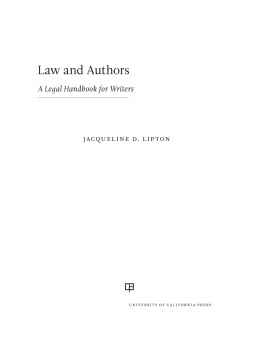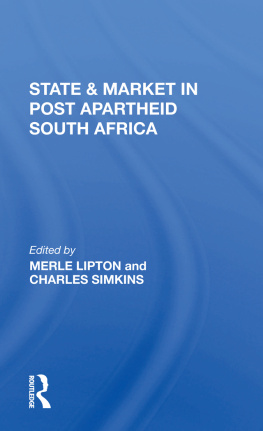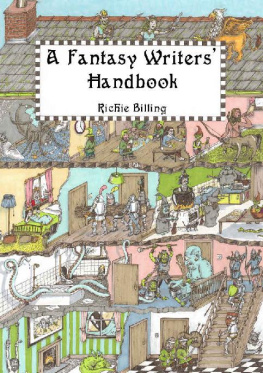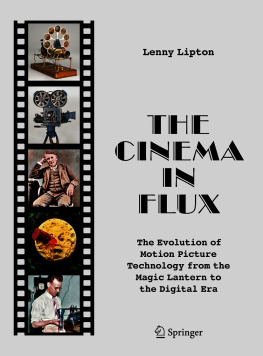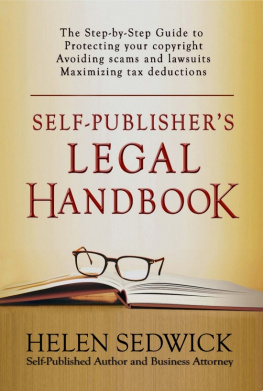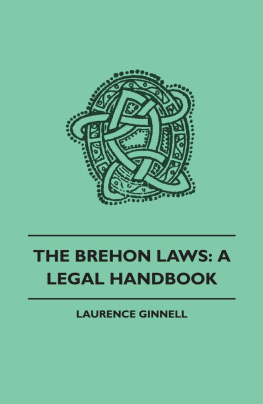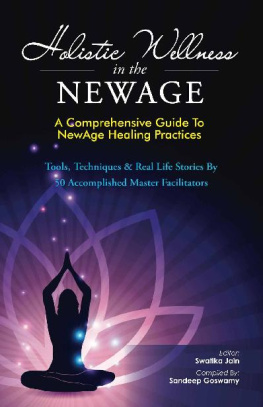Jacqueline D. Lipton - Law and Authors: A Legal Handbook for Writers
Here you can read online Jacqueline D. Lipton - Law and Authors: A Legal Handbook for Writers full text of the book (entire story) in english for free. Download pdf and epub, get meaning, cover and reviews about this ebook. year: 2020, publisher: University of California Press, genre: Romance novel. Description of the work, (preface) as well as reviews are available. Best literature library LitArk.com created for fans of good reading and offers a wide selection of genres:
Romance novel
Science fiction
Adventure
Detective
Science
History
Home and family
Prose
Art
Politics
Computer
Non-fiction
Religion
Business
Children
Humor
Choose a favorite category and find really read worthwhile books. Enjoy immersion in the world of imagination, feel the emotions of the characters or learn something new for yourself, make an fascinating discovery.
- Book:Law and Authors: A Legal Handbook for Writers
- Author:
- Publisher:University of California Press
- Genre:
- Year:2020
- Rating:4 / 5
- Favourites:Add to favourites
- Your mark:
- 80
- 1
- 2
- 3
- 4
- 5
Law and Authors: A Legal Handbook for Writers: summary, description and annotation
We offer to read an annotation, description, summary or preface (depends on what the author of the book "Law and Authors: A Legal Handbook for Writers" wrote himself). If you haven't found the necessary information about the book — write in the comments, we will try to find it.
Law and Authors: A Legal Handbook for Writers — read online for free the complete book (whole text) full work
Below is the text of the book, divided by pages. System saving the place of the last page read, allows you to conveniently read the book "Law and Authors: A Legal Handbook for Writers" online for free, without having to search again every time where you left off. Put a bookmark, and you can go to the page where you finished reading at any time.
Font size:
Interval:
Bookmark:

JACQUELINE D. LIPTON

UNIVERSITY OF CALIFORNIA PRESS
University of California Press
Oakland, California
2020 by Jacqueline D. Lipton
Cataloging-in-Publication Data is on file at the Library of Congress.
ISBN 978-0-520-30180-1 (cloth : alk. paper)
ISBN 978-0-520-30181-8 (pbk. : alk. paper)
ISBN 978-0-520-97224-7 (ebook)
Manufactured in the United States of America
28 27 26 25 24 23 22 21 20
10 9 8 7 6 5 4 3 2 1
Setting the Stage: A Primer on the Law for Writers
Ownership, Registration, the Public Domain, and Creative Commons
Understanding Your Rights and Protecting Your Work
Ghostwriting, Freelancing, IP, and Works for Hire
Parody, Fanfiction, and Educational Use
Trademark Basics
Privacy Law
Defamation Law
Websites, Blogs, Book Trailers, Social Networking, and More
Writing a book is always a significant undertaking, involving not only a time commitment but a real passion for the subject matter. This book, for me, was born out of a passion to bring some (hopefully) accessible legal information to those who need it, in an area where accurate and user-friendly legal information can be hard to come by. This is no fault of anyone working in the area. Its just that the laws related to publishing, and to writing more generally, can be complex and can change significantly over time. The rise of digital technology is both a blessing and a curse here; it provides more information than ever before, but much of the information is inaccurate, out of date, or based on particular situations and not applicable to other contexts.
Attempting to explain the law to authors is no easy task and theres no one right way to do it. It was a challenging decision for me to even try, and Im grateful to those who supported me on the way by discussing initial ideas for the book, helping me draft and redraft, and helping get the proposal and the final manuscript into the hands of those who could bring it to its intended audience. Thanking particular people is always a risk because Im sure to leave someone out, but, at the risk of offending others, Id particularly like to thank Cynthia Leitich Smith, Nova Ren Suma, and Bethany Hegedus for early discussions about this concept (and to Bethany for giving me the perfect place to draft the initial proposalshout out to The Writing Barn!). Kendra Levin provided wise counsel and encouragement, generously sharing many of her own experiences of writing a nonfiction book for authors. Chuck Sambuchino helped me get the proposal into shape to take it out into the world. And Jane Dystel, my agent, found the book the perfect home with editor Naomi Schneider and the University of California Press. I couldnt be in better hands than with Jane and Naomi, who understood, from the get-go, the importance of the project and the way to move it into the hands of readers who need it. (And an extra-special thanks to Miriam Goderich, who found me in the slush pile and connected me with Jane.) There are too many writing buddies to name, including the folks at VCFA and Highlights and the Djerassi Resident Artists Program, but all of you have provided support as well as space to write. In particular, thanks to Amelinda Brub, Bree Barton, Shellie Faught, and the rest of the Sassy Djerassis for commenting on multiple draft chapters. And a big thank you to my Youngstown critique group: Nikki Ericksen, Anthony Manna, and especially Rebecca Barnhouse, our fearless leader and my agency sister at DGBLM, for helping me find my voice for this book.
As always, the biggest thanks go to my familyPat, Sean, Brianne, and Meganfor putting up with my absences and distractions while writing. Youre the best family a law professor/writer could have.
In the early 2010s, paranormal romance writer J.A. Saare was hitting her stride with two separate series of fantasy titles, alongside a number of popular romances published under the pen name Aline Hunter. The romance titles, published by the independent press Elloras Cave, comprised the bulk of her sales, while her self-published work was achieving a growing fandomnotably, a vampire romance series, Rhiannons Law. When she initially published the third book in that series, she included an authors note explaining to her readers that, due to the increase in digital piracy, she was considering ending the series prematurely. It didnt make financial sense for her to keep writing the books when she couldnt control the piracy.
Subsequently, Elloras Cave hit some money problems of its own and eventually closed down, removing one of Saares more reliable income streams. Ultimately, she got her rights back from Elloras Cave, and she later found new publishers for most of her work. However, her challenges in the publishing world were not unusual, particularly when it comes to self-publishing, or publishing with a smaller or less established press. And Saare had an advantage over many other authors because she understood her legal rights and knew how to get her rights back from her publisher.
Not all authors, agents, or even editors have a thorough grasp of the legal landscape of the modern publishing world with its increased digitization and globalization. This is not surprising. The laws related to the creative arts have always been complex, often providing little clear guidance in any given situation. The sudden rise of digital technology in the early twenty-first century only added to the confusion. Even lawyers have a hard time with the finer points of digital copyright law, fair use, digital contracts, and rights related to free speech and defamation, so its no surprise that authors get confused.
The book youre holding in your hands (or reading on your device) is a simple resource for writers and other publishing professionals who want to know more about their legal rights and responsibilities. As a regular speaker on these issues, Ive realized that writers, in particular, have surprisingly few places to go for answers to basic legal questions. Some of the most common questions include the following:
Can I quote song lyrics in my novel?
(How much) am I allowed to write about real people?
Can I protect an idea for a story I havent written yet?
Can I trademark my book title?
When and how should I register copyright in my book?
Do I have to include a notice on my work?
Is fanfiction fair use? What about parody? How about educational use?
If you find yourself embroiled in a serious legal battleand I hope you never doyou may need formal legal advice or representation. However, if youre simply going about your writing business, and concerned about how the law impacts you on a day-to-day basis, this book will give you information, and hopefully also some comfort, about the kinds of things you should and shouldnt have to worry about.
Its virtually impossible to write a book about legal issues without occasionally using some technical legal language. Ill do my best to avoid jargon, but whenever I do introduce a new legal term, Ill put it in italics and include a user-friendly explanation.
Law should never be an excuse for not writing, or an impediment to writing what you want to write. Legal issues can usually be dealt with somehow, at some point in the publishing process, so dont let fear of the law be one more excuse for not getting your butt into the chair and the words onto the page. There are so many distractions that keep us from getting the writing done: housework, socializing, day jobs, family obligations. Dont let the law be one more distraction for you!
Font size:
Interval:
Bookmark:
Similar books «Law and Authors: A Legal Handbook for Writers»
Look at similar books to Law and Authors: A Legal Handbook for Writers. We have selected literature similar in name and meaning in the hope of providing readers with more options to find new, interesting, not yet read works.
Discussion, reviews of the book Law and Authors: A Legal Handbook for Writers and just readers' own opinions. Leave your comments, write what you think about the work, its meaning or the main characters. Specify what exactly you liked and what you didn't like, and why you think so.

